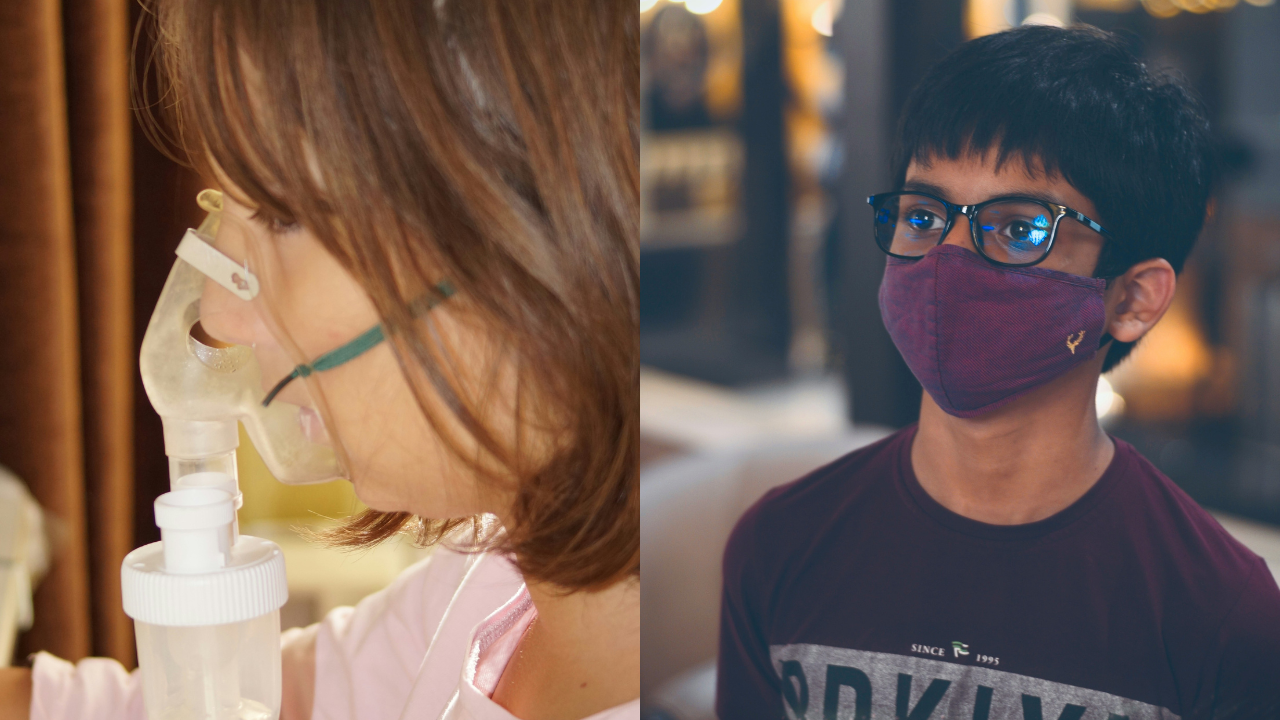Health
Manage Allergies and Asthma This Monsoon: Expert Pediatric Tips

As the monsoon season approaches, many families may experience an increase in allergies and asthma, particularly in children. Pediatric asthma, characterized by symptoms such as excessive coughing, wheezing, and chest tightness, can be exacerbated by allergens like dust mites, molds, and pollen, which thrive in the humid conditions typical of this time of year.
To effectively manage these health concerns, pediatricians recommend several proactive measures that can significantly improve the well-being of children during the rainy season.
Strengthening the Immune System
One of the most effective ways to combat allergies and asthma is to bolster the immune system. Consuming foods rich in vitamin C, omega-3 fatty acids, and antioxidants can help reduce inflammation caused by seasonal changes. Fresh fruits, vegetables, and fish are excellent sources that can contribute to a healthier immune response.
Identifying Triggers
Parents are encouraged to closely monitor their children’s symptoms and identify potential triggers. Understanding what causes allergic reactions can lead to effective long-term solutions. For instance, if mold is identified as a trigger, immediate steps can be taken to address damp areas in the home.
Ensuring Proper Ventilation
Proper ventilation is crucial in managing respiratory issues that may arise during the monsoon. Ensuring adequate airflow in the home can alleviate some of the breathing difficulties experienced by children with asthma or allergies. Simple actions, such as opening windows or using fans, can promote better air circulation.
Maintaining Cleanliness at Home
Regular cleaning is essential to avoid the buildup of dust, mold, and mites. Parents should wash bed linens, curtains, and carpets frequently to minimize allergens. This practice can significantly reduce the risk of allergic reactions and asthma flare-ups.
Using Air Quality Tools
Incorporating air filters and dehumidifiers can also help manage indoor humidity levels and improve air quality. These devices reduce the presence of allergens in the air, creating a safer environment for children to breathe.
Staying Hydrated
Adequate hydration plays a vital role in respiratory health. Drinking enough water helps thin mucus secretions, making it easier to breathe. Parents should encourage their children to drink water regularly, especially during the humid months.
Developing an Asthma Care Plan
Creating an individualized asthma care plan is essential. Consulting with a pediatrician or pulmonologist can help parents understand the necessary medications and devices, such as inhalers and antihistamines, that should be readily available. Having a clear plan ensures that families can respond promptly if symptoms worsen.
By following these guidelines, families can better manage allergies and asthma during the monsoon season. The proactive approach not only enhances the quality of life for children but also provides peace of mind for parents navigating this challenging time.
-

 World4 months ago
World4 months agoSBI Announces QIP Floor Price at ₹811.05 Per Share
-

 Lifestyle4 months ago
Lifestyle4 months agoCept Unveils ₹3.1 Crore Urban Mobility Plan for Sustainable Growth
-

 Science3 months ago
Science3 months agoNew Blood Group Discovered in South Indian Woman at Rotary Centre
-

 World4 months ago
World4 months agoTorrential Rains Cause Flash Flooding in New York and New Jersey
-

 Sports3 months ago
Sports3 months agoBroad Advocates for Bowling Change Ahead of Final Test Against India
-

 Top Stories4 months ago
Top Stories4 months agoKonkani Cultural Organisation to Host Pearl Jubilee in Abu Dhabi
-

 Science4 months ago
Science4 months agoNothing Headphone 1 Review: A Bold Contender in Audio Design
-

 Top Stories4 months ago
Top Stories4 months agoAir India Crash Investigation Highlights Boeing Fuel Switch Concerns
-

 Sports3 months ago
Sports3 months agoCristian Totti Retires at 19: Pressure of Fame Takes Toll
-

 Business4 months ago
Business4 months agoIndian Stock Market Rebounds: Sensex and Nifty Rise After Four-Day Decline
-

 Politics4 months ago
Politics4 months agoAbandoned Doberman Finds New Home After Journey to Prague
-

 Top Stories4 months ago
Top Stories4 months agoPatna Bank Manager Abhishek Varun Found Dead in Well









